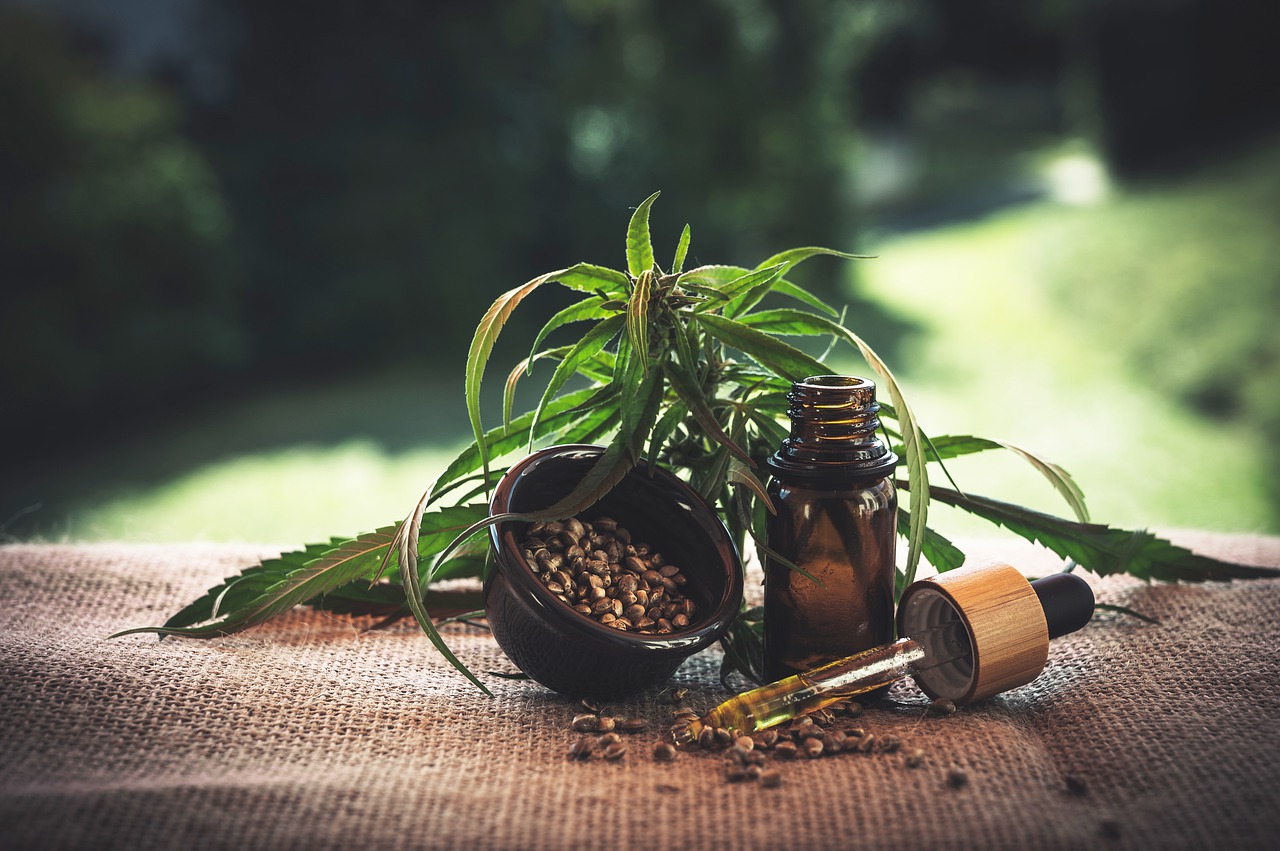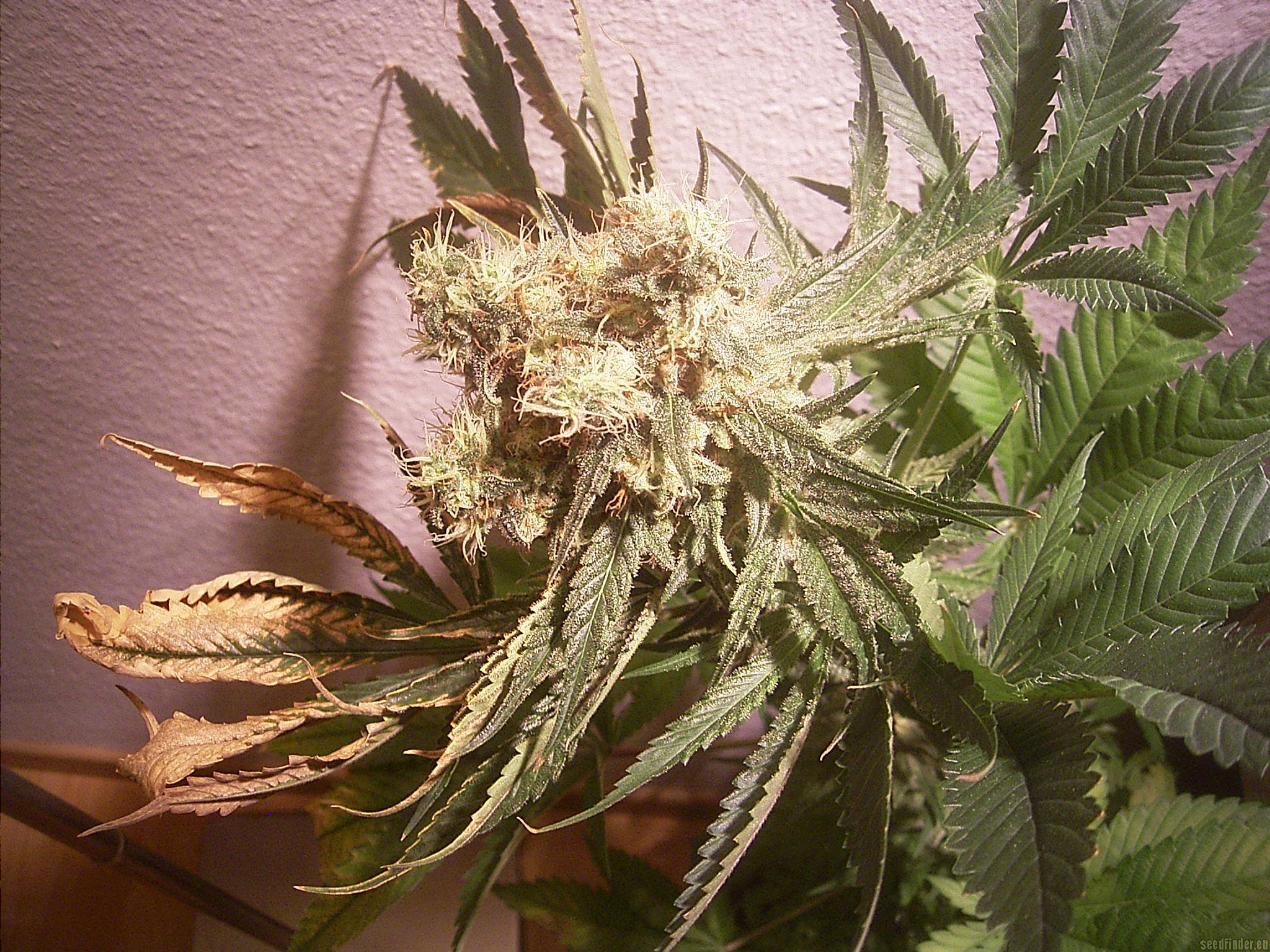 How Does CBD Work? What is CBD Oil? What About CBD from Hemp? Cannabidiol (CBD) is a naturally occurring compound found in the resinous flower of cannabis, a plant with a rich history as a medicine going back thousands of years. Today the therapeutic properties of CBD are being tested and confirmed by scientists and doctors around the world. A safe, non-addictive substance, CBD is one of more than a hundred “phytocannabinoids,” which are unique to cannabis and endow the plant with its robust therapeutic profile. CBD is closely related to another important medicinally active phytocannabinoid: tetrahydrocannabinol (THC), the compound that causes the high that cannabis is famous for. These are the two components of cannabis that have been most studied by scientists. Both CBD and THC have significant therapeutic attributes. But unlike THC, CBD does not make a person feel “stoned” or intoxicated. That’s because CBD and THC act in different ways on different receptors in the brain and body.
How Does CBD Work? What is CBD Oil? What About CBD from Hemp? Cannabidiol (CBD) is a naturally occurring compound found in the resinous flower of cannabis, a plant with a rich history as a medicine going back thousands of years. Today the therapeutic properties of CBD are being tested and confirmed by scientists and doctors around the world. A safe, non-addictive substance, CBD is one of more than a hundred “phytocannabinoids,” which are unique to cannabis and endow the plant with its robust therapeutic profile. CBD is closely related to another important medicinally active phytocannabinoid: tetrahydrocannabinol (THC), the compound that causes the high that cannabis is famous for. These are the two components of cannabis that have been most studied by scientists. Both CBD and THC have significant therapeutic attributes. But unlike THC, CBD does not make a person feel “stoned” or intoxicated. That’s because CBD and THC act in different ways on different receptors in the brain and body.
CBD can actually lessen or neutralize the psychoactive effects of THC, depending on how much of each compound is consumed. Many people want the Ciao Health CBD|Ciao Health|CiaoHealthCBD.net|www.CiaoHealthCBD.net|Ciao Health CBD Gummies|Ciao CBD|CiaoHealth|CiaoHealthCBD|Ciao Health Review|Ciao Health CBD Review|Ciao CBD Gummies|Ciao Health CBD Oil|Ciao Health Supplement|Ciao Health Formula|Ciao Hemp Extract|Buy Ciao Health CBD|Order Ciao Health|Ciao Health Website|Try Ciao Health|Get Ciao Health CBD benefits of cannabis without the high – or with less of a high. The fact that CBD is therapeutically potent as well as non-intoxicating, and easy to take in various forms, makes it an appealing treatment option for those who are cautious about trying cannabis for the first time. Many people are seeking alternatives to pharmaceuticals with harsh side effects – medicine more in synch with natural processes. By tapping into how we function biologically on a deep level, Ciao Health formula CBD can provide relief for chronic pain, anxiety, inflammation, depression, and many other conditions. Extensive scientific research – much of it sponsored by the U.S. CBD has proven neuroprotective effects and its anti-cancer properties are being investigated at several academic research centers in the United States and elsewhere. A 2010 brain cancer study by California scientists found that CBD “enhances the inhibitory effects of THC on human glioblastoma cell proliferation and survival.” This means that CBD makes THC even more potent as an anticancer substance.
Also in 2010, German researchers reported that CBD stimulates neurogenesis, the growth of new brain cells, in adult mammals. How Does CBD Work? CBD and THC interact with our bodies in a variety of ways. One of the main ways is by mimicking and augmenting the effects of the compounds in our bodies called “endogenous cannabinoids” – so named because of their similarity to compounds found in the cannabis plant. The discovery of the endocannabinoid system has significantly advanced our understanding of Ciao Health CBD|Ciao Health|CiaoHealthCBD.net|www.CiaoHealthCBD.net|Ciao Health CBD Gummies|Ciao CBD|CiaoHealth|CiaoHealthCBD|Ciao Health Review|Ciao Health CBD Review|Ciao CBD Gummies|Ciao Health CBD Oil|Ciao Health Supplement|Ciao Health Formula|Ciao Hemp Extract|Buy Ciao Health CBD|Order Ciao Health|Ciao Health Website|Try Ciao Health|Get Ciao Health CBD and disease. It has major implications for nearly every area of medical science and helps to explain how and why CBD and THC are such versatile compounds – and why cannabis is such a widely consumed plant, despite its illegal status. The endocannabinoid system plays a crucial role in regulating a broad range of physiological processes that affect our everyday experience – our mood, our energy level, our intestinal fortitude, immune activity, blood pressure, bone density, glucose metabolism, how we experience pain, stress, hunger, and more.
What happens if the endocannabinoid system doesn’t function properly? What are the consequences of a chronically deficient or overactive endocannabinoid system? In a word, disease. Cutting-edge science has shown that the endocannabinoid system is dysregulated in nearly all pathological conditions. Thus, it stands to reason that “modulating endocannabinoid system activity may have therapeutic potential in almost all diseases affecting humans,” as Pal Pacher and George Kunos, scientists with the U.S. National Institutes of Ciao Health formula (NIH), suggested in a 2013 publication. By modulating the endocannabinoid system and enhancing endocannabinoid tone, CBD and THC can slow – or in some cases stop – disease progression. There’s a lot of excitement about the healing potential of CBD – with good reason. But it wasn’t until June 25, 2018, that the U.S. Food and Drug Administration (FDA) recognized cannabidiol as a medicine by approving Epidiolex, an almost pure pharmaceutical CBD formulation, as a treatment for two severe pediatric seizure disorders, Lennox-Gastaut syndrome and Dravet syndrome.
 This was the first time since the peak of the reefer madness era 80 years ago – when “marihuana” became a crime instead of a cure – that the federal government had given an official thumbs-up for a cannabis-derived product. In response to the FDA’s historic decision, the Drug Enforcement Administration (DEA) announced in September 2018 that it had removed Epidiolex from Schedule I classification, a category reserved for dangerous drugs with no medical value. Henceforth, Epidiolex would be considered a Schedule V drug, the least dangerous designation under the Controlled Substances Act. The DEA later “descheduled” Epidiolex and removed it from the federal government’s list of controlled substances. But the DEA kept cannabis and CBD (when derived from a cannabis plant with more than 0.3 % THC) on Schedule I as an illegal narcotic. In the world according to Uncle Sam, pharmaceutical CBD is officially the only good cannabinoid while the rest of the plant remains an ‘evil’ weed.
This was the first time since the peak of the reefer madness era 80 years ago – when “marihuana” became a crime instead of a cure – that the federal government had given an official thumbs-up for a cannabis-derived product. In response to the FDA’s historic decision, the Drug Enforcement Administration (DEA) announced in September 2018 that it had removed Epidiolex from Schedule I classification, a category reserved for dangerous drugs with no medical value. Henceforth, Epidiolex would be considered a Schedule V drug, the least dangerous designation under the Controlled Substances Act. The DEA later “descheduled” Epidiolex and removed it from the federal government’s list of controlled substances. But the DEA kept cannabis and CBD (when derived from a cannabis plant with more than 0.3 % THC) on Schedule I as an illegal narcotic. In the world according to Uncle Sam, pharmaceutical CBD is officially the only good cannabinoid while the rest of the plant remains an ‘evil’ weed.
